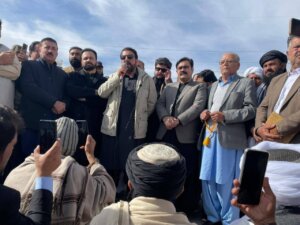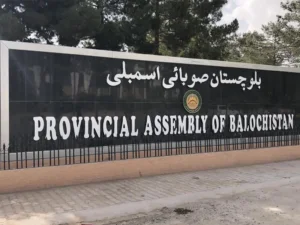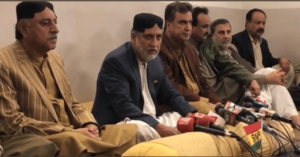Monitoring Desk:
PESHAWAR: In a major political development, Pakistan Tehreek-e-Insaf (PTI) leader Sohail Afridi has been elected as the new Chief Minister of Khyber Pakhtunkhwa (KP), following an assembly session overshadowed by opposition protests and uncertainty over Ali Amin Gandapur’s resignation.
According to KP Assembly Speaker Babar Saleem Swati, Sohail Afridi secured 90 votes out of the 145-member provincial assembly, comfortably crossing the required majority of 73 votes. The opposition parties, including JUI-F, PML-N, and PPP, boycotted the session and did not receive a single vote.
Speaker Swati announced that Maulana Lutfur Rehman (JUI-F), Sardar Shah Jehan Yousaf (PML-N), and Arbab Zarak Khan (PPP) failed to gain any support, while three members were reported to be abroad.
Following the announcement, the assembly echoed with loud chants of “Sohail Afridi Zindabad” as PTI lawmakers celebrated what they called a “historic victory for Imran Khan’s vision in Khyber Pakhtunkhwa.”
A Worker From the Tribal Belt Becomes Chief Minister
In his first address as Chief Minister, Sohail Afridi expressed deep gratitude to PTI founder Imran Khan, crediting him for nominating “a simple party worker from a middle-class background” instead of someone from a political dynasty.
“Neither Bhutto, Zardari, nor Sharif is attached to my name,” Afridi said proudly, emphasizing his roots in the tribal districts.
He said that for 78 years, the people of the tribal areas were stereotyped as backward or expendable, but Imran Khan recognized their potential and gave them representation.
“No matter how much I thank Imran Khan, it will never be enough,” Afridi remarked, adding that tribal communities across KP are celebrating his victory and thanking PTI for giving them a voice.
Political Change in Khyber Pakhtunkhwa
The Khyber Pakhtunkhwa Assembly election marks a significant shift in provincial politics, as PTI reaffirms its dominance despite leadership transitions. Sohail Afridi’s appointment symbolizes Imran Khan’s populist strategy, empowering loyal grassroots workers rather than traditional elites.
Political analysts believe this decision will strengthen PTI’s narrative of accountability, meritocracy, and representation of the tribal belt — a region historically overlooked by mainstream politics.
Afridi vowed to continue Imran Khan’s vision of good governance, justice, and development in KP, promising to “end the sense of deprivation” among tribal communities.






